Cats are known for some of their strange and often mysterious behaviors. A common behavior that many cat owners may witness is their blanket sucking. This can be confusing and even funny for some. But have you ever wondered why cats do this? We will explore the reasons behind this strange behavior and shed some light on possible explanations. So, let’s unravel the mystery behind why cats suck on blankets.
Table of Contents
Understanding Cats Suck Behavior
Before we delve into the specific behavior of blanket sucking, it’s important to know and understand a bit about cat behavior in general. Cats suck are usually very curious with unique personalities. They have instincts that drive their behavior. Sometimes we may seem strange to humans. As natural predators, cats have a strong urge to hunt in their surroundings. They also have a strong need for comfort and security. That’s why they mostly look for warm, comfortable places to rest.
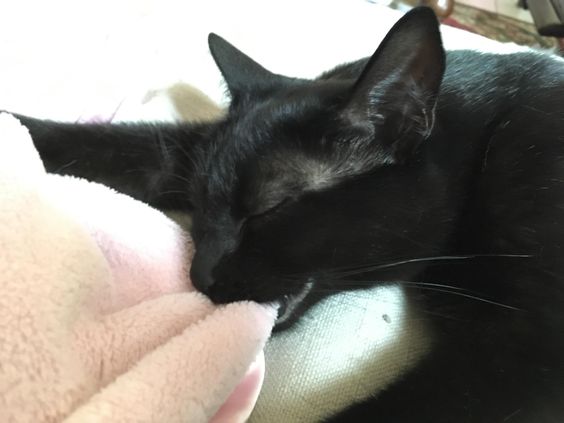
5 Reasons Why Your Cats Suck on Blankets
Cats suck are known for their strange behavior. A common behavior that many cat owners may witness is their blanket sucking. This can be confusing and even funny for some. But have you ever wondered why cats do this? We will explore the reasons behind this strange behavior and shed some light on possible explanations. So, let’s uncover the mystery behind why cats suck on blankets.
Few reasons behind blanket sucking
Now that we understand a bit about the cat throwing behavior behind blanket sucking, let’s focus on why cats suck on blankets. There are several theories to explain this behavior. Generally these tasks can vary from cat to cat. Here are some possible reasons:
Comfort: Cats need a strong and beautiful place for comfort and protection. Cats only suck on blankets when they feel relaxed and satisfied.
Nursing Instinct: Kittens feed on their mother’s nipples and stimulate the flow. This instinct can carry over into adulthood, and some cats may also suck on blankets as a way to satisfy their nursing instinct.
Marking their territory: Cats suck have scent glands on their feet and can mark their territory by leaving their scent behind when they rub or suck on blankets.
Separation Anxiety: If a cat is separated from their mother at a young age, they may develop separation anxiety. Blanket sucking can provide them with a sense of security and comfort in their mother’s absence.
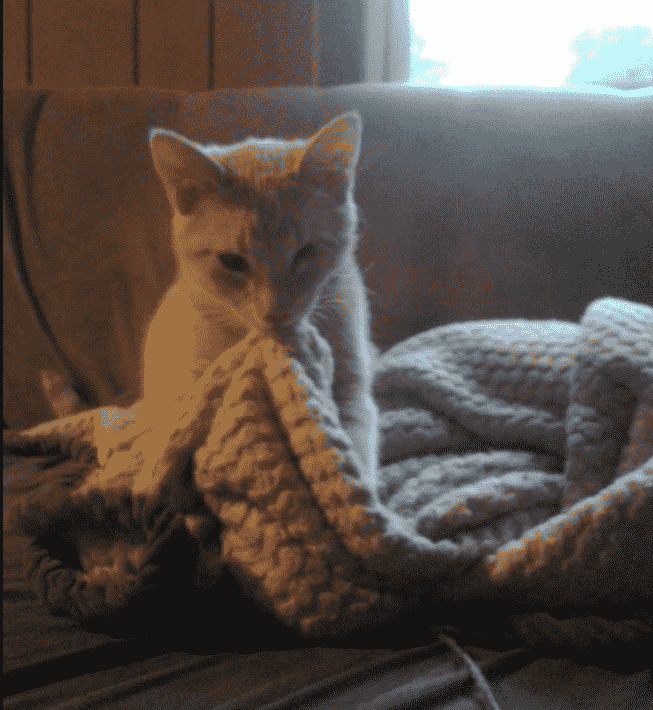
Change in environment or region
Changing environments is stressful. If your cat is prone to anxiety, these changes can make it worse. Cutler said. Cutler says introducing your cat to new people or pets can stress them out. Because they can lead to blanket sucking.
Genetics:
Some studies have shown that cat breeds like Siamese, Persians, and Burmese prefer to suck on blankets.
Feeding Type:
Cutler says free-fed cats are less likely to exhibit blanket-sucking behavior.
What to do if your cat sucks on the blanket
If your cats suck or purring on the blanket or sucking on the blanket, it’s usually nothing to worry about. However, if you notice excessive behavior or damage anywhere in the blanket, it is best to consult your veterinarian. In some cases, cats may suck on blankets for reasons such as stress or dental problems.
To prevent this potential problem, make sure your cats suck has plenty of toys and scratching posts to keep them mentally stimulated. You can try providing a soft blanket or towel specially designated for their sucking needs.
Where did the blanket sucker come from
The phenomenon of blanket sucking in cats suck is both behavioral and evolutionary. Behaviorally, this task is closely tied to the experience of kittens. Kittens also suckle by squeezing their mother’s teats to stimulate milk flow. This action is comforting and rewarding. Because it is associated with warmth and nourishment from the mother.
This behavior may have been advantageous to the wild ancestors of domestic cats. For example, kneading and sucking behaviors can facilitate creating a comfortable resting place. Can even help check the safety of potential rest areas. These behaviors have survived thousands of years of domestication. They are now exposed, yet common, blanket-sucking behavior seen in many household cats today.
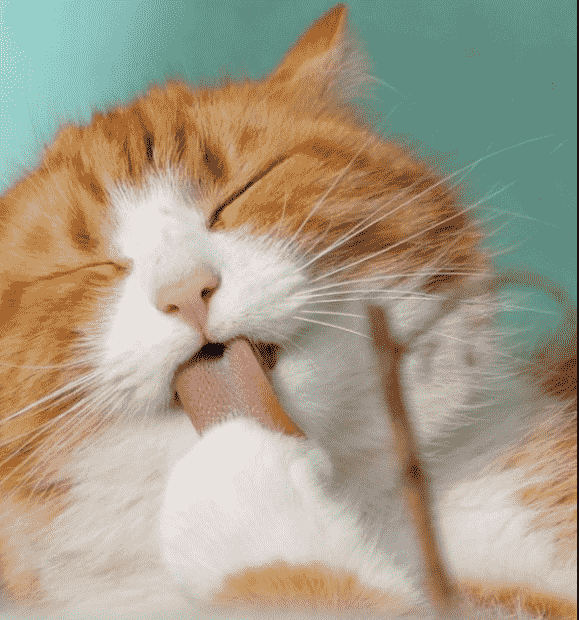
Tips for dealing with blanket sucking
As mentioned earlier, blanket sucking is a normal and harmless behavior for the most part. However, this can be problematic if your cat’s activity becomes excessive or destructive. If you notice any behavior, it’s best to consult your veterinarian to rule out underlying health issues. Here are some tips for managing your cats suck blanket behavior:
- Provide plenty of toys and scratching posts to keep your cat mentally stimulated. Then your cat will be mentally healthy.
- Instead of letting your cat pick random things around the house, you can let your cat use a specific blanket or towel to suck on.
- Try using a pheromone spray or diffuser to calm cats.
- If the behavior persists, consult a professional veterinarian for guidance.
Can blankets hurt my cat
In most situations, blankets do not pose a significant risk to cats suck. Rather it is a source of comfort and security. However, there are also situations where blankets can harm your cat. If a blanket is too heavy, it can cause distress or physical harm, especially to small or weak cats.
Some components may overheat. Allergic reactions can occur in cats, especially during the warmer months. Most notably, threads or fibers from damaged or frayed blankets can be ingested by a cat during the sucking process. which leads to gastrointestinal blockage requiring veterinary attention.
It is very important to closely monitor the condition of the blanket and any changes in your cats suck behavior or health. If you notice any symptoms such as difficulty breathing, loss of appetite or vomiting, take your cat to a vet immediately.
Blanket sucking is a natural and instinctive behavior in cats that stems from their kitten experiences. Although this may seem strange or even relatable to people. It serves a purpose for our feline friends. With proper management and a better understanding of behavior, you can continue to enjoy your cats suck blanket fun without worry.
Be sure to provide emotional stimulation, designate specific blankets for their needs, and seek professional help if needed. Most importantly, continue to love and care for your furry friend as they bring joy and companionship to your life. Keep learning your understanding of cat behavior – your cat will thank you with plenty of purring.
Can cats get sick from sucking blankets too often
Although blanket sucking is not directly harmful to cats. But the behavior can lead to potential health problems if not closely monitored. One issue is eating small pieces like fiber or blankets, which can cause gastrointestinal blockage.
Additionally, if the blankets are treated with harmful chemicals or detergents, they can leach toxins into your cats suck system. There is such a risk. Therefore, although this is a comfort-seeking behavior, it is crucial to ensure the safety of the materials your cat has access to and to address the causes of the behavior.
Prevention of excessive suction
Preventing excessive sucking in cats requires a multi-pronged approach. which caters to both the physical and emotional needs of your pet. Creating a nurturing environment that minimizes a cat’s stress and anxiety is extremely important. Regular engagement in play, providing a variety of toys can greatly improve your cat’s sense of security.
Consult a veterinarian to confirm health issues contributing to the behavior. Finally, the introduction of special cat-safe nursing toys can offer a harmless outlet for this instinctive need. Keeps the behavior away from the blanket and can ensure your cat’s safety. With patience, understanding, and proper care, you can help your cat overcome the tendency to suck on blankets. It can also promote a happy and healthy bond between your feline friend.
Additional tips for cat owners
- Provide physical stimulation for your cat to prevent boredom and stress.
- Create a peaceful environment for your cat
- Simulate the comforting sensation of your cat being licked by their mother on a regular basis.
- If you notice any changes in your cats suck behavior or health, seek professional help.
With love, patience and proper care, you can help your cat overcome this behavior and build a strong bond between you. So the next time you see your cat with a blanket stuck to their face, remember that this may be a sign of their trust and comfort in you as their caregiver.

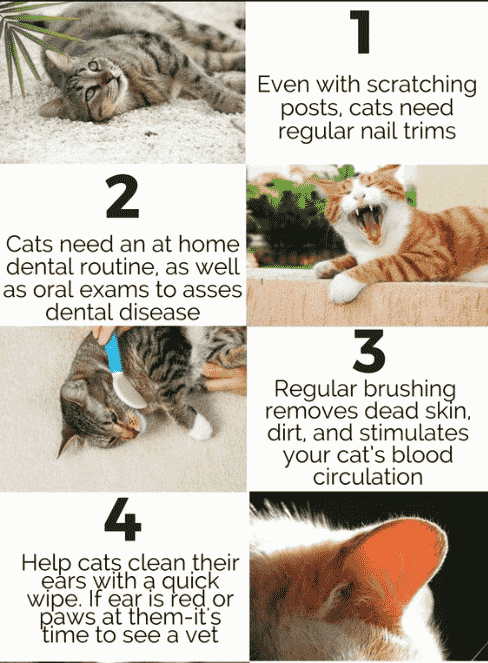
When to seek veterinary advice
It is very important to closely monitor your cat’s behavior and health. If you notice changes such as sudden weight loss, signs of gastrointestinal discomfort, or eating parts of blankets or other food items, you should seek veterinary advice.
This indicates a condition called pica, which can be a serious health problem for your cat. Additionally, if efforts to redirect the behavior fail or if you notice significant changes in behavior, it is recommended that you consult a veterinarian.
A professional can provide insight into possible medical causes for the behavior and recommend treatments tailored to your cat’s specific needs.
Remember, as a responsible pet owner, your priority is to ensure your cat’s safety and well-being. With proper care and attention, you can help discourage your cat from sucking blankets and create a happy and fulfilling life for both you and your feline companion.
Conclusion
Again, blanket sucking by cats can be a harmless and endearing behavior. Again this can also be a problem if left unchecked. It is very important to understand the reasons behind this behavior and try different methods to manage it.
If none of the above strategies work, it is crucial to consult a veterinarian or animal behaviorist. Be sure to be patient and consistent in your approach as you help your cat break this habit.
Additional Tips
- Monitor your cat’s behavior and try to identify any triggers.
- Avoid scolding or punishing your cat for this behavior. Because it can increase their stress levels.
- If your cat is sucking blankets due to weaning problems, consult a veterinarian for advice on how to resolve this problem.
- Provide plenty of mental and physical stimulation for your cat to prevent boredom and possible stress-related behaviors. For example: interactive toys.



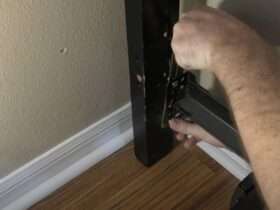


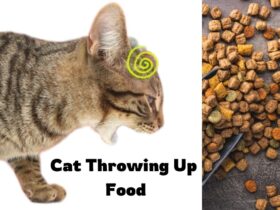






Leave a Reply